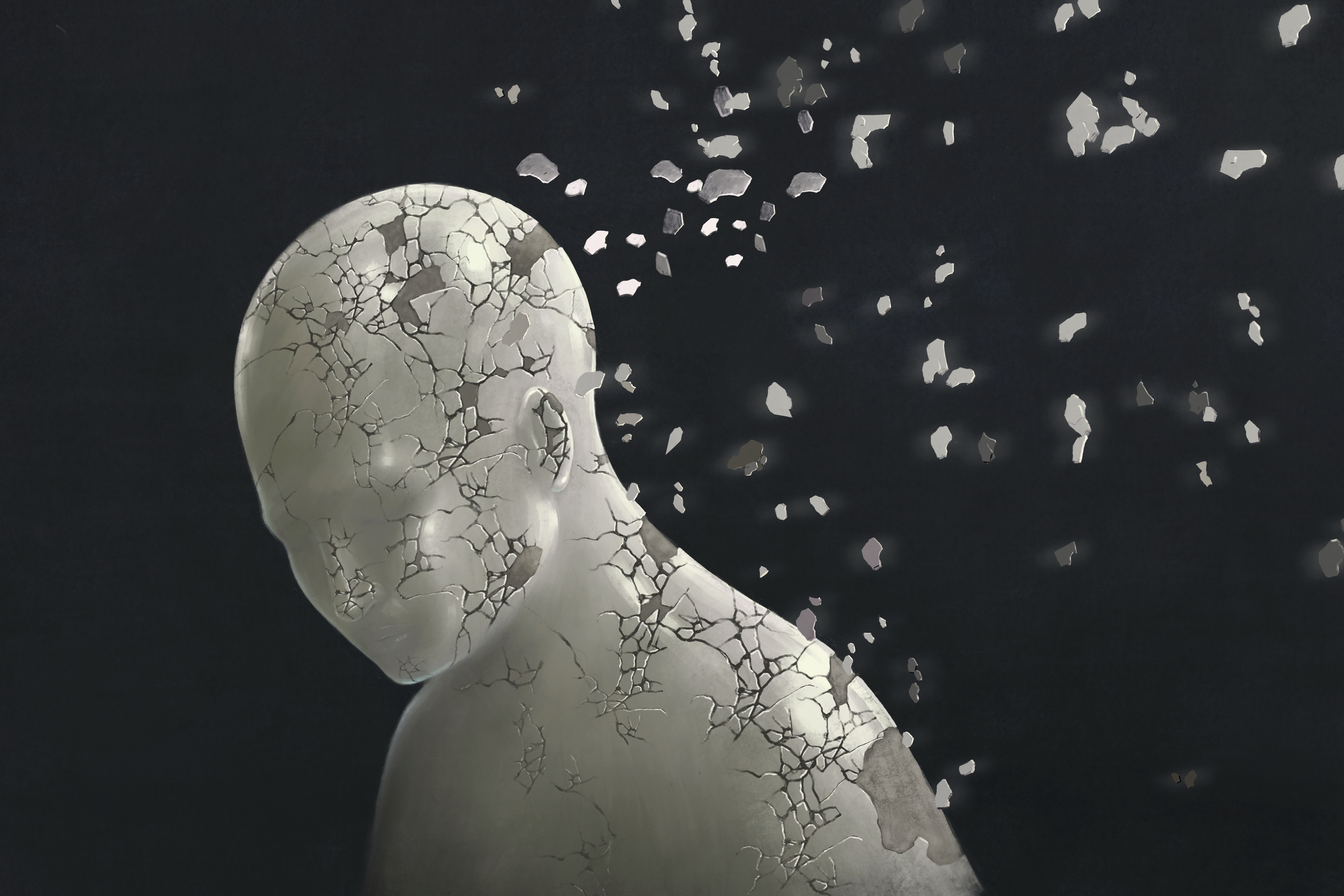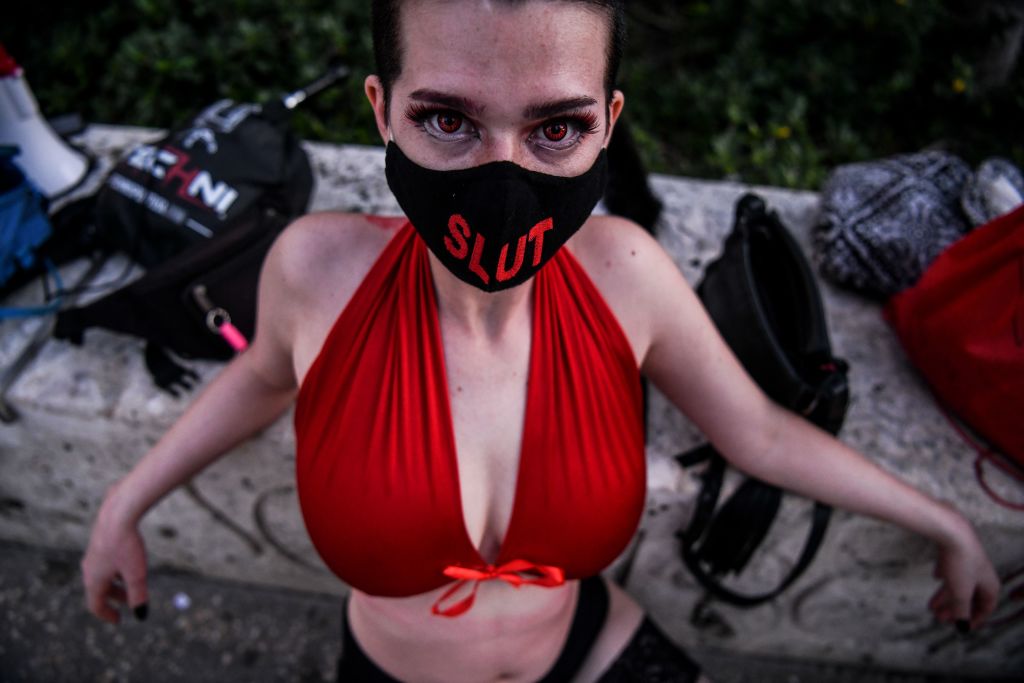A troubling trend of social isolation is afflicting young adults globally.
Pity the Poor Trans Man

With all the concern about men in women’s bathrooms, how come no one seems worried about the converse?
The three most active fronts in the battle over trans identity are public, shared territory designated for the sexes separately. Opening up public bathrooms, sports, and prisons has been central to the normalization of trans ideology. But while local communities have resisted the imposition of this new ideology by fighting to protect female-only spaces, there has been little concern for male equivalents.
This supports the contention of those supporting female-only spaces that their motivation is to protect women and girls from potential danger from biological males rather than a blind hatred of trans individuals. Men are not threatened physically by the presence of biological women in public men’s bathrooms. Men don’t face significant competition from women at the highest levels of athletic competition, and incarcerated males are not in danger from biological females in their prisons.
The muted reaction to “trans men” has not escaped the notice of trans activists who drive public discourse over the issue. In fact, the primary complaint from trans men is about how little people care one way or the other about them—that they suffer from an invisibility that might be interpreted as consistent with Americans’ indifference to what individual adults do on their own time.
Thirty-six-year-old Hollywood actor Elliot (previously Ellen) Page discovered this upon “coming out” as a man in 2020, and again following the release of a rather thin memoir of her trans experience, Pageboy, in June of 2023. Page is possibly the most famous trans man in the world, but attacks on her from imagined armies of transphobes never materialized to confront the man/gyno line defending Elliot’s individual and civil rights. Instead, most non-activists have reacted with what can only be described as pity and concern for a person who can barely conceal profound unhappiness, who radiates discomfort and introversion.
That Page is also a famous actor who periodically makes dramatic public announcements about personal matters is not surprising. The public is used to hearing ostentatious psychobabble from actors, at least as far back as Marlon Brando and the Method. But Page and trans ideology might be more consciously following the advice of Sanford Meisner, who described acting as “living truthfully under imaginary circumstances.” Or it could be that Elliot has the self-awareness of Robert Downey, Jr. portraying a white actor in blackface in the movie Tropic Thunder: “Me? I know who I am. I’m a dude playing the dude disguised as another dude.”
Elliot Page’s desire to be recognized and acknowledged as a dude doesn’t really bother anyone, and that’s the problem for a movement mired in internal contradictions and dependent on diversions and feints their skeptics won’t engage with. Chemically or surgically mutilating minors is a tougher question, so activists have focused on situations where conflict could be instigated, such as bathrooms, prisons, and athletics. But those places have not stirred up conflict with regards to biological women in places meant to be exclusively male.
The reasons are obvious. A biological female is in much greater potential danger using a public men’s restroom than she is a threat. A trans man in a men’s prison is in even more danger from incarcerated men who have proven themselves to be violent or predatory, especially toward women and the physically vulnerable. And athletics are ultimately a form of entertainment for most people, one that has a long history of encouraging, even hoping for, female athletes who could compete on equal terms with males.
It is estimated that there are a total of two trans men in the U.S. incarcerated alongside biological males in men’s prisons. While the Biden Administration has expressed support for housing biological men in women’s prisons, ostensibly to follow the intent of the Prison Rape Elimination Act of 2003, states like California are facing lawsuits from women who contend that housing inmates in the facility that aligns with their preference presents dangers to female inmates that do not affect male inmates. There have been many incidents in which biological males carried out offenses against female inmates. But those involving biological females threatening male inmates are vanishingly rare, if they have occurred at all. The majority of trans men sensibly choose to serve their sentences in women’s prisons.
For equally sensible reasons most trans men forego phalloplasty or other “bottom surgeries.” And though hysterectomies were previously required before beginning hormone treatment in the past (due to increased cancer risk of testosterone), they no longer are, as some trans men like to leave open the option to gestate. So menstruation and gynecological care remain an ongoing concern for many trans men, and women’s prisons remain better equipped to address these requirements.
Public restrooms are a focus of many courtroom battles in World War T, but once again it is the potential danger to women in giving biological men access to women’s facilities that provokes the most pushback. Rather than the threat of physical harm, trans men mostly complain that men’s public bathrooms are, in addition to being disgusting, surprisingly unsocial compared to ladies’ room. They discover that men assiduously avoid eye contact and conversation, while getting in and out as quickly as possible. Some trans masculine activists note the lack of tampons or mention getting “funny looks,” but violating the no-eye-contact rule likely will get you funny looks whether you want them or not.
Men’s sports define the highest level of any given sport, but people are excited rather than threatened by the prospect of women legitimately competing. Serena Williams subdued her champions who asserted that she is the greatest athlete of all time by admitting without shame that she would likely rank “like 700” if she were to compete against male tennis pros. But there have been many instances of women given a shot to compete with top male athletes, with almost unanimous support from fans.
For example, 17-year-old Jackie Mitchell struck out Babe Ruth and Lou Gehrig in an exhibition baseball game in 1931. Legendary athlete Babe Zaharias teed off at the Los Angeles Open in a PGA event in 1945. Fifty-five-year-old Bobby Riggs happily played tennis against top-ranked women’s player Billie Jean King in the famous Battle of the Sexes media event in 1973. Ann Meyers signed a contract and participated in three days of tryouts for the NBA’s Indiana Pacers in 1980, while Manon Rhéaume tried out for the NHL’s Tampa Bay Lightning in 1992 and appeared in two preseason games. Danica Patrick won an Indy Car race in Japan in 2008, her only victory in a highly lucrative career that made her easily one of racing’s most popular and well-known drivers. Julie Krone won the Belmont Stakes on Colonial Affair in 1993.
While there may have been critics of women in men’s sports, their concerns are typically about the safety or dignity of female athletes rather than any perceived competitive threat to top male performers.
As with “male to female” transsexuals, trans men assert that manhood is a function of identity, though they often manipulate secondary sexual characteristics via surgery and hormonal treatments. The alteration of primary sexual characteristics has not been perfected, to say the least. Even the closest simulacrum doctors can produce is strictly cosmetic and no closer to authentic sexual and reproductive function than it’s ever been. But while biological men have asserted themselves into female spaces and roles with great insistence, biological women define themselves as trans men primarily by desexing themselves as much as possible.
Elliot Page’s memoir starts with an explanation that its nonlinear narrative is necessary “because queerness is essentially nonlinear.” The essence of masculinity or sex is not examined with many specifics, and Page’s claim that she is and always has been a man is primarily an assertion to be accepted as a matter of faith. The lack of criteria is essential, a required suspension of belief in such things required from her participating audience.
Perhaps Sanford Meisner’s advice to actors is also useful for those experiencing “nonlinear” reality: “embrace who you really are, warts and all,” also try not to “think too much.” But while Meisner spoke of the liberating effect of not caring what people think about you, trans ideology demands people affirm what trans people believe about themselves. Their beliefs cannot bear scrutiny.
The American Mind presents a range of perspectives. Views are writers’ own and do not necessarily represent those of The Claremont Institute.
The American Mind is a publication of the Claremont Institute, a non-profit 501(c)(3) organization, dedicated to restoring the principles of the American Founding to their rightful, preeminent authority in our national life. Interested in supporting our work? Gifts to the Claremont Institute are tax-deductible.
OnlyFans and the Sordid Underbelly of our Ruling Class
Affluent hypocrisy has split America in two.
Media culture sells girls’ bodies—and souls—for parts.
Radical ideologies have disfigured our home life. Here’s how to make us whole again.
They hate her ‘cause they ain’t her.






